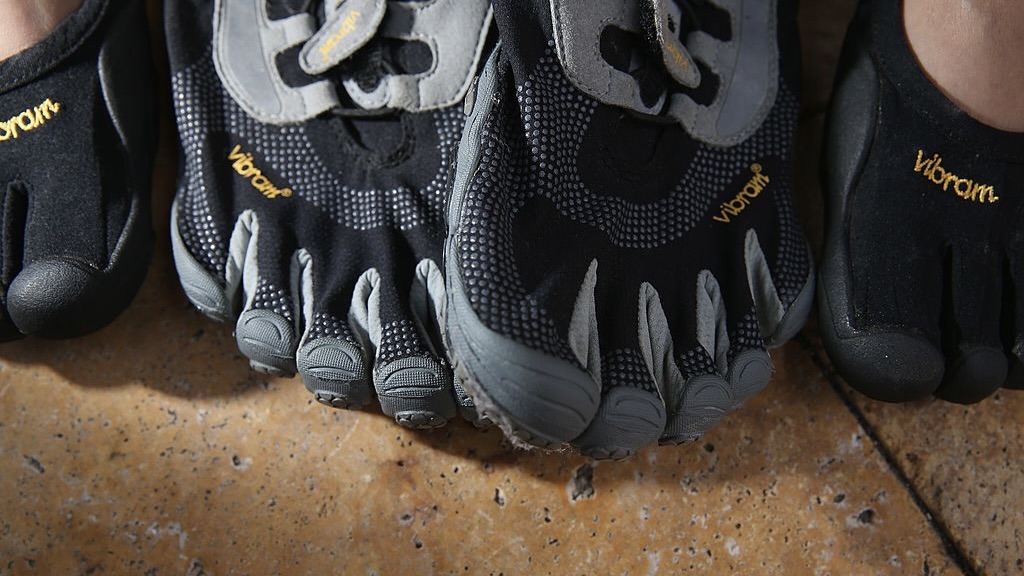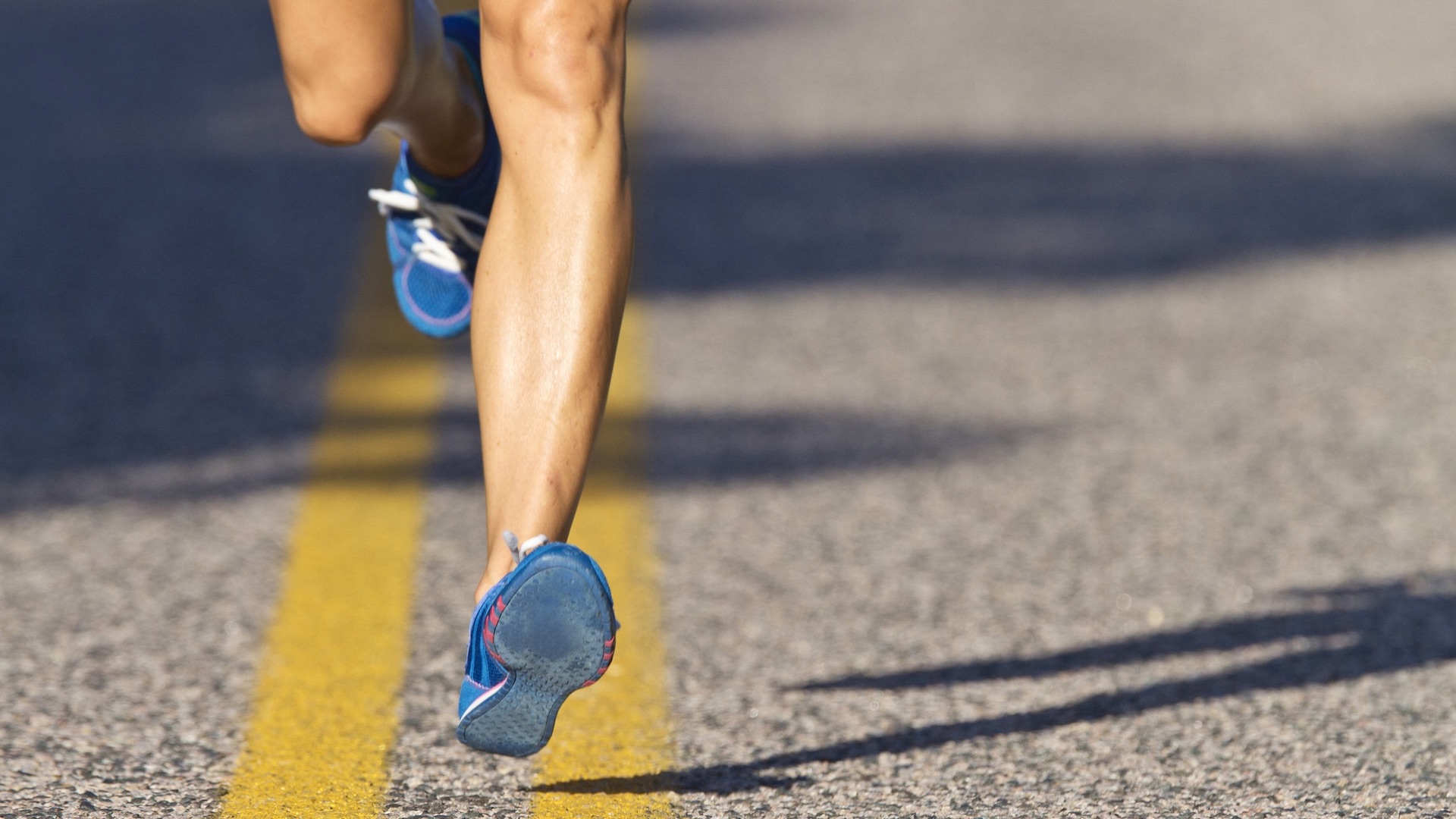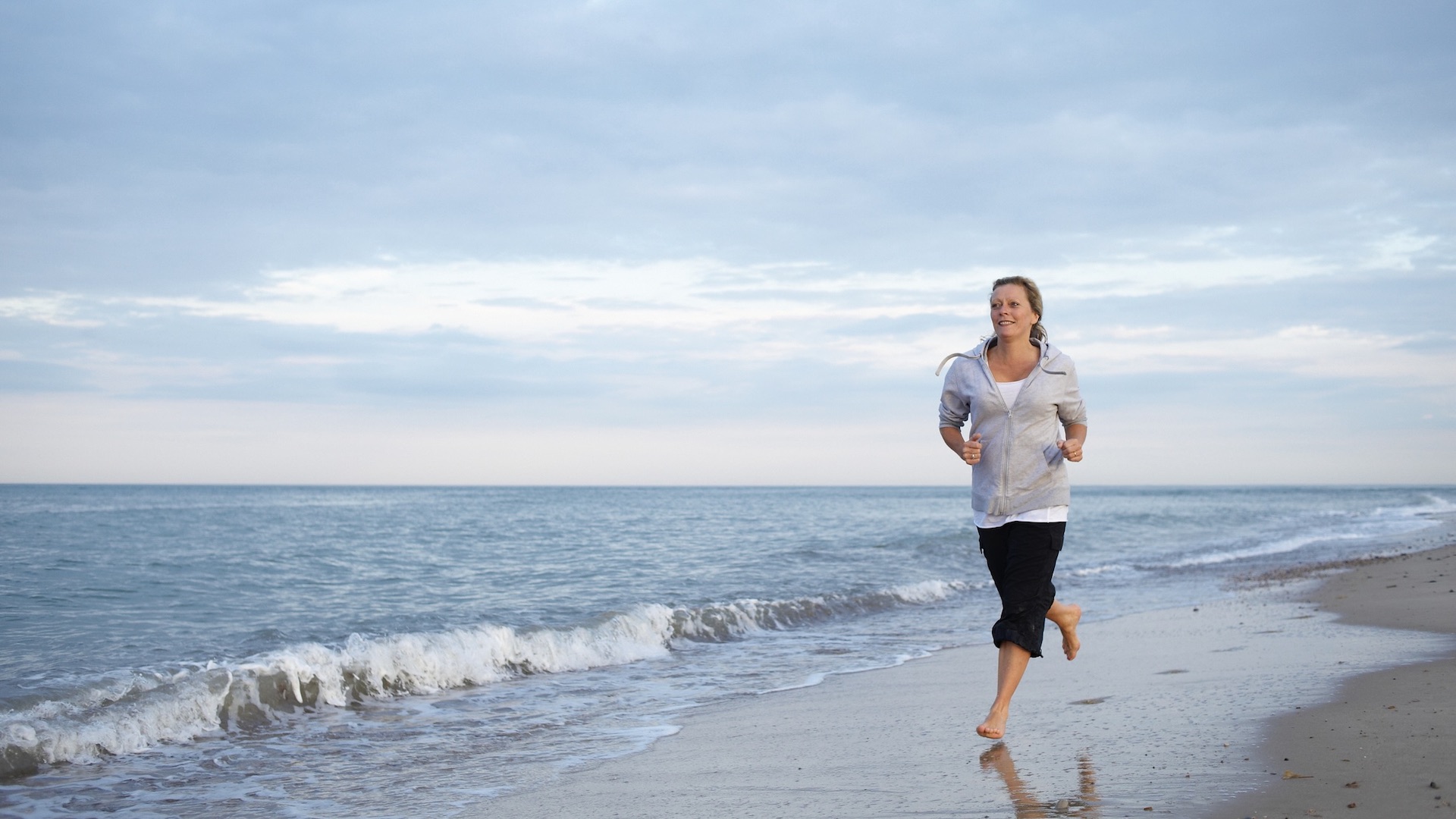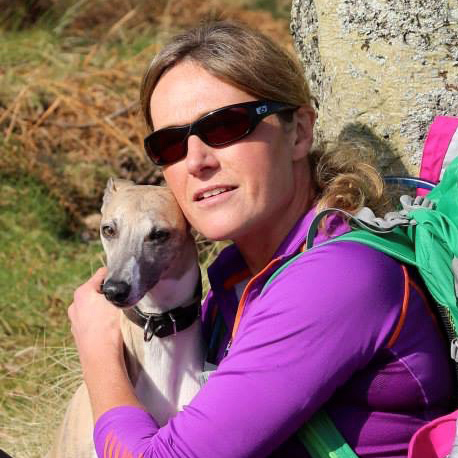Is barefoot running actually good for you?
An expert guide to the pros and cons of running barefoot, or in minimalist running shoes

All the latest inspiration, tips and guides to help you plan your next Advnture!
You are now subscribed
Your newsletter sign-up was successful
Barefoot running has been an on-off trend for decades. It’s also a subject with two sides: those that believe barefoot running is good for you and others who report the opposite. We take a look at the arguments for and against.
What is barefoot running?
In its most literal sense, barefoot running is running in bare feet. To allow them to run on terrain that could be painful underfoot, many barefoot runners wear minimalist style running shoes that aim to provide protection without inhibiting the natural movement of their feet. These barefoot running shoes usually offer a neutral heel-to-toe drop with a ground-feel sole and flexible uppers.
The proponents of barefoot running believe the activity is a way to reduce the associated injuries of running. The claims are connected to evolutionary theories when long-distance running was crucial for human survival.
They, therefore, use this as proof of the benefits of natural running. Subsequently, runners have been advised to start to run barefoot as a way to reduce the potential for injuries and to improve a runner's physical strength and conditioning.
It’s only in modern times that people have worn shoes and, for some, it’s claimed that the body works best biomechanically without the structure and support of footwear.

What are the benefits of barefoot running?
Personal trainer James Dixon suggests that people who are fans of barefoot running believe there is “something instinctual about it”. He adds: “There is a community of runners that find it liberating to feel the earth directly under their feet.
“It’s seen as instinctual, like you're reconnecting with ancient human practices. Enthusiasts will tell you that the benefits go beyond feeling the ground. They claim your feet strike the ground differently, possibly reducing the risk of certain injuries.
All the latest inspiration, tips and guides to help you plan your next Advnture!
“Plus, feeling the ground directly might actually help you adjust your movements more naturally as you run.
“Added to this, some fans report that you feel increased energy and benefit from improved metabolic rate if you run barefoot.”
Another factor that might give you reason to believe that barefoot running is good for you is the number of sport shoe brands that have designed running shoes that mimic the barefoot condition.
James also suggests that wearing 'normal' running shoes can have some downsides. He says: “Running with shoes isn't always risk-free. For example, some people find that the extra cushioning encourages longer strides, which can also lead to a unique set of injuries.”
Fitness instructor Erin Blakely points to another claimed benefit of barefoot running. She says: “Running in bare feet is said to enhance proprioception – your body's spatial awareness – through increased sensory feedback from the soles of your feet. This can also lead to the strengthening of muscles in your feet."
There are barefoot runners who talk about the sense of freedom and how this makes the feel more self-confident.

What do the scientists say?
A few small studies conclude there may be some advantages to barefoot running, although the evidence is often anecdotal and not very recent.
One study of 509 runners in America published in 2015 concluded that a large percentage of the sample experienced some benefits or “no serious harm” from transitioning to barefoot or minimal shoe running.
A 2015 literature review based on 100 biomechanical and kinematic studies found only anecdotal evidence to suggests there are benefits for barefoot runners, but that claimed disadvantages to barefoot running are not supported by the literature. The report's author concluded that “barefoot running may be an acceptable training method for athletes and coaches, as it may minimize the risks of injury”.
Are there downsides of barefoot running?
James, who works with Fitness Brain, reports that while there are many fans of barefoot running, there are also some potential negatives to consider. He says: “While barefoot runners will tell you that running in shoes can lead to injuries, it’s fair to say that running without shoes has dangers, too. Without footwear, you’re more exposed to the potential for scrapes, cuts, and stress fractures.”
Erin, who is the founder and CEO of Senior Golf Source, a fitness resource for golfers, points to some problems for some people. She says: “Running without footwear means you do not have the arch support that footwear provides and this is what usually absorbs shock and distributes weight. This is especially helpful for those with flat feet or low arches. Running shoes also provide an added cushioning layer.”

Further research
So far, there has been relatively little research into the potential benefits of barefoot running. A 2012 literature review published in the British Journals of Sports Medicine concluded that there is not enough evidence to report the overriding advantages of removing your shoes, or running in minimalist footwear, compared to wearing conventional running shoes.
The study suggested that running form and technique, rather than running barefoot or in minimalist footwear, could be the biggest contributor to running-associated injuries. Other factors, such as the speed at which runners build up their running miles and the quality of their footwear could be more to blame for running injuries than giving up footwear altogether.
So, is barefoot running good for you?
James offers common sense advice: “At the end of the day, I see this as a personal choice. It's all about what feels right for your body and your running style. And if you are thinking about making the switch, then my advice is to go slow and maybe seek some professional advice."
Erin says: “In my role as a guiding professional, I advise people who want to do barefoot running to take it slowly. Perhaps it’s also something to try in the summer months, when it’s warmer, rather than starting in the colder months.”
- The best trail running shoes: our top recommendations for tough terrain

Fiona Russell is a widely published adventure journalist and blogger, better known as Fiona Outdoors. She is based in Scotland and is an all-round outdoors enthusiast with favorite activities including trail running, mountain walking, mountain biking, road cycling, triathlon and skiing (both downhill and backcountry). Aside from her own adventures, Fiona's biggest aim is to inspire others to enjoy getting outside and exploring, especially through her writing. She is also rarely seen without a running skort! Find out more at Fiona Outdoors.
